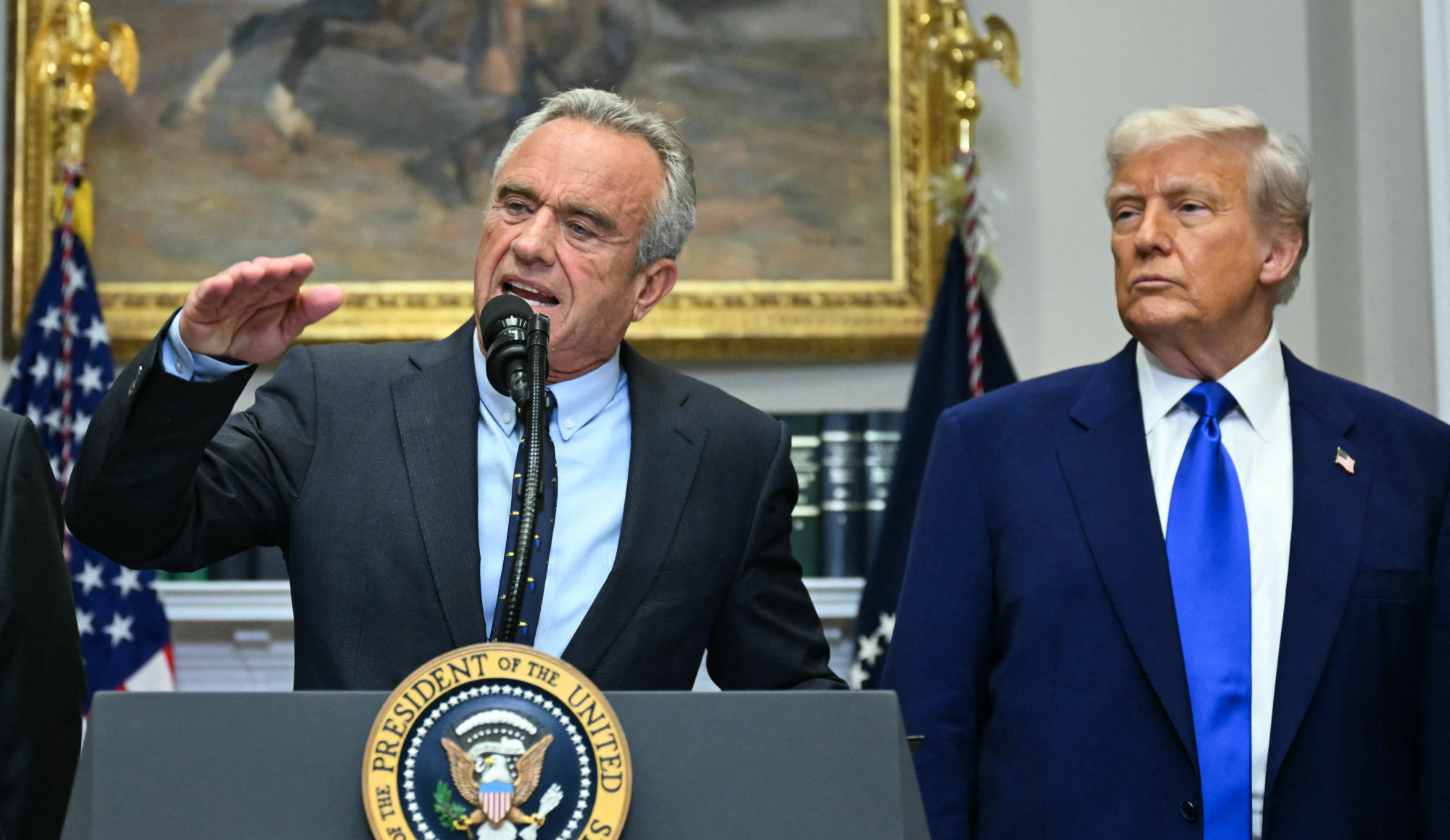Trump seeks to cut drug prices via executive order
The president's order tells pharmaceutical companies to lower prescription drug prices, but it will likely be thrown out by the courts


A free daily email with the biggest news stories of the day – and the best features from TheWeek.com
You are now subscribed
Your newsletter sign-up was successful
What happened
President Donald Trump Monday signed an executive order aimed at persuading pharmaceutical companies to lower the prices of U.S. prescription drugs. Trump's order gives companies a 30-day deadline to start voluntarily lowering prices or face potential consequences.
Who said what
The White House "teased the announcement as seismic," but Trump's order lacks "teeth" and "cites no obvious legal authority to mandate lower prices," The New York Times said. It was "something of a win" for drugmakers, which had been "bracing" for a "much more damaging" policy. "Far from demonizing pharmaceutical companies for high prices," The Washington Post said, Trump "focused his fire" on European countries "for negotiating drug prices so low" the U.S. picks up the "costs of innovation."
Sen. Bernie Sanders (I-Vt.) said while he agreed with Trump that U.S. drug prices are "an outrage," the problem was not that prices are "too low in Europe and Canada" but that the "extraordinarily greedy pharmaceutical industry" is "ripping off the American people." Besides, he added, "as Trump well knows, his executive order will be thrown out by the courts."
The Week
Escape your echo chamber. Get the facts behind the news, plus analysis from multiple perspectives.

Sign up for The Week's Free Newsletters
From our morning news briefing to a weekly Good News Newsletter, get the best of The Week delivered directly to your inbox.
From our morning news briefing to a weekly Good News Newsletter, get the best of The Week delivered directly to your inbox.
What next?
If drug companies do not lower their prices, Trump's order directs Health Secretary Robert F. Kennedy Jr. to develop a new rule that "ties the price the U.S. pays for medications to lower prices paid by other countries," said The Associated Press.
A free daily email with the biggest news stories of the day – and the best features from TheWeek.com
Peter has worked as a news and culture writer and editor at The Week since the site's launch in 2008. He covers politics, world affairs, religion and cultural currents. His journalism career began as a copy editor at a financial newswire and has included editorial positions at The New York Times Magazine, Facts on File, and Oregon State University.
-
 How the FCC’s ‘equal time’ rule works
How the FCC’s ‘equal time’ rule worksIn the Spotlight The law is at the heart of the Colbert-CBS conflict
-
 What is the endgame in the DHS shutdown?
What is the endgame in the DHS shutdown?Today’s Big Question Democrats want to rein in ICE’s immigration crackdown
-
 ‘Poor time management isn’t just an inconvenience’
‘Poor time management isn’t just an inconvenience’Instant Opinion Opinion, comment and editorials of the day
-
 A Nipah virus outbreak in India has brought back Covid-era surveillance
A Nipah virus outbreak in India has brought back Covid-era surveillanceUnder the radar The disease can spread through animals and humans
-
 Is the US about to lose its measles elimination status?
Is the US about to lose its measles elimination status?Today's Big Question Cases are skyrocketing
-
 Mixed nuts: RFK Jr.’s new nutrition guidelines receive uneven reviews
Mixed nuts: RFK Jr.’s new nutrition guidelines receive uneven reviewsTalking Points The guidelines emphasize red meat and full-fat dairy
-
 Trump HHS slashes advised child vaccinations
Trump HHS slashes advised child vaccinationsSpeed Read In a widely condemned move, the CDC will now recommend that children get vaccinated against 11 communicable diseases, not 17
-
 A fentanyl vaccine may be on the horizon
A fentanyl vaccine may be on the horizonUnder the radar Taking a serious jab at the opioid epidemic
-
 The stalled fight against HIV
The stalled fight against HIVThe Explainer Scientific advances offer hopes of a cure but ‘devastating’ foreign aid cuts leave countries battling Aids without funds
-
 Vaccine critic quietly named CDC’s No. 2 official
Vaccine critic quietly named CDC’s No. 2 officialSpeed Read Dr. Ralph Abraham joins another prominent vaccine critic, HHS Secretary Robert F. Kennedy Jr.
-
 Nitazene is quietly increasing opioid deaths
Nitazene is quietly increasing opioid deathsThe explainer The drug is usually consumed accidentally
